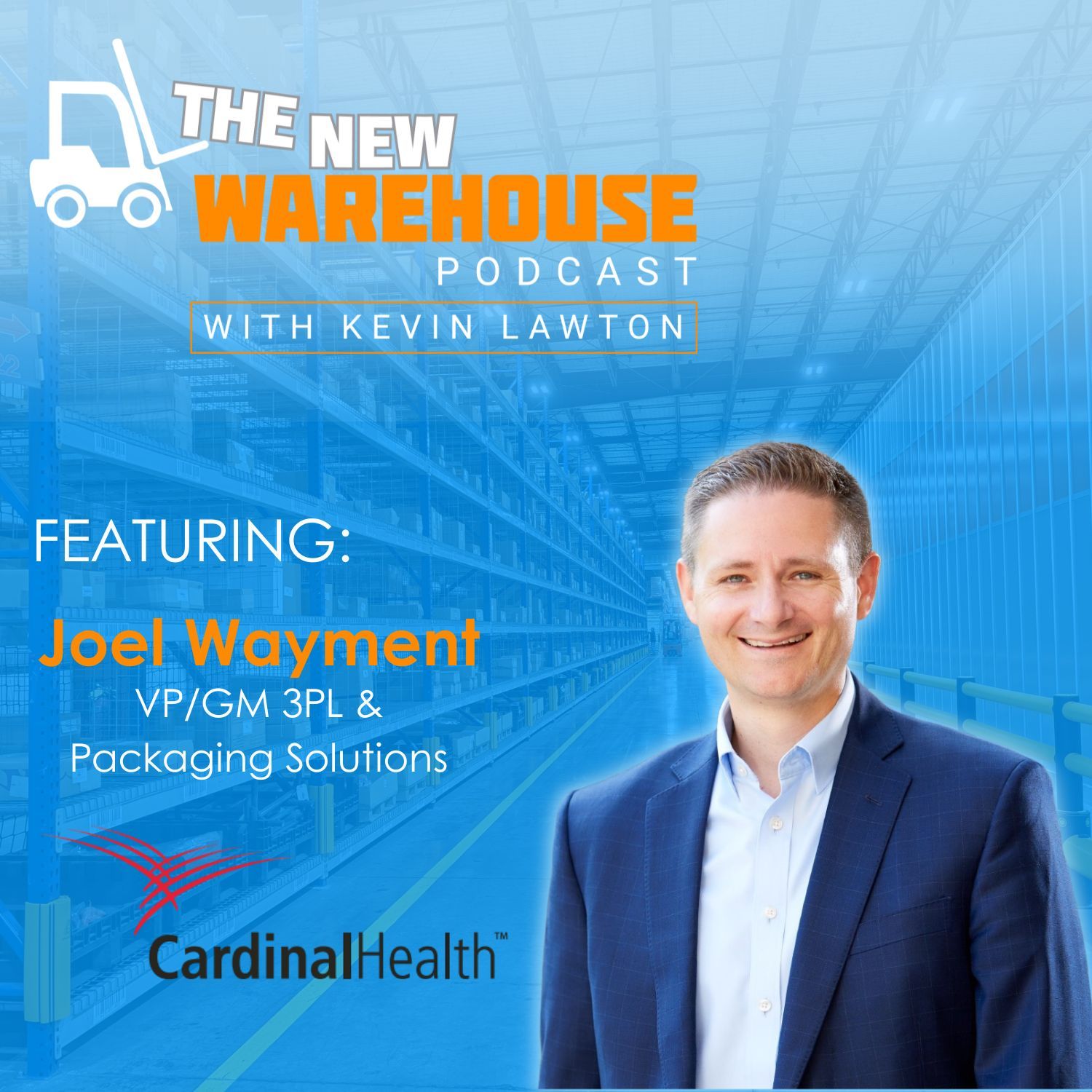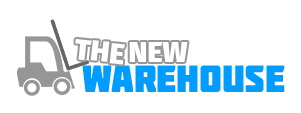
619: Safeguarding Pharmaceutical Logistics with Cardinal Health
In this episode of The New Warehouse Podcast, Kevin chats with Joel Wayment, Vice President and General Manager of Third-Party Logistics (3PL) and Packaging Solutions at Cardinal Health. Joel shares how Cardinal Health supports pharmaceutical manufacturers by managing complex logistics and packaging requirements to ensure life-saving products reach patients in perfect condition. He also discusses sustainability, visibility technology, and network planning for pharmaceutical logistics. He emphasizes that every medical supply chain shipment affects not only the patient but also their family and loved ones.
Navigating the Complexities of Pharmaceutical Logistics
Managing pharmaceuticals is far more intricate than moving everyday goods. “This is a very heavily regulated space,” Joel explains, noting the strict storage and shipping requirements that can range from refrigerated to ultra-cold conditions. Cold chain products may need to be maintained for 48 to over 100 hours in specialized, validated shippers. In addition to temperature control, Cardinal Health must comply with current good manufacturing practices (CGMP), state pharmacy boards, and ISO certifications.
Weather disruptions, natural disasters, and even large-scale events like parades can pose risks, so the company proactively monitors conditions to forward-position inventory or adjust transportation plans. “We consistently focus on… what are the possible alternatives to make sure the product continues to move through the supply chain.” This vigilance ensures therapies remain viable from manufacturing through patient delivery.
Partnering Early to Support Innovation
Cardinal Health’s 3PL division typically engages with manufacturers as they near the end of clinical trials, sometimes as much as two years before launch. Early engagement allows for early infrastructure planning, especially for novel therapies with unique handling requirements. “We’re looking at what we see coming to the market… and where we need to invest as an organization,” Joel says.
For packaging, his team helps manufacturers design configurations that balance storage efficiency, product protection, and customer needs—whether that’s primary or secondary packaging. Cold chain solutions are chosen based on temperature sensitivity and shipment duration, with many now incorporating reusable, sustainable materials. These efforts tie directly into manufacturers’ environmental, social, and governance (ESG) goals, with Joel proudly noting that “we probably recycle 90% plus of the waste that we deal with.”
Building for the Future of Pharmaceutical Logistics: Visibility, Sustainability, and Patient-Centric Delivery
Looking ahead, Joel sees three priorities shaping pharmaceutical logistics: visibility, sustainability, and proximity to patients. Enhanced tracking technology will provide real-time data on location, temperature, and even container tilt. This level of insight allows for proactive intervention rather than reactive loss.
Sustainability will drive continued adoption of reusable shippers and smarter “milk run” networks that consolidate freight and reduce the number of trucks on the road. Finally, patient-centric delivery models, especially for cell and gene therapies, will align product logistics with patient scheduling, as some treatments have short shelf lives once removed from liquid nitrogen. “Every box we ship out is going to impact a patient positively… and we take that responsibility very seriously,” Joel emphasizes, underscoring the human impact behind every operational decision.
Key Takeaways on Pharmaceutical Logistics
- Pharmaceutical logistics demands strict compliance with cGMP, state pharmacy boards, and ISO certifications.
- Cold chain storage ranges from 2°C to -196°C, requiring specialized, validated shippers for 48–100+ hours of stability.
- Early engagement with manufacturers (1–2 years before launch) enables tailored infrastructure and packaging solutions.
- Sustainability initiatives include more than 90% waste recycling and the adoption of reusable shippers.
- Future focus areas: real-time shipment visibility, ESG-driven efficiencies, and aligning deliveries with patient treatment schedules.
Listen to the episode below and leave your thoughts in the comments.
Guest Information
For more information on Cardinal Health, click here.
To connect with Joel on LinkedIn, click here.
For more information about pharmaceutical logistics, check out the podcasts below.
563: Achieving Supply Chain Efficiency with Bayer Healthcare
553: Scaling Fulfillment Strategies for Modern Health Brands
